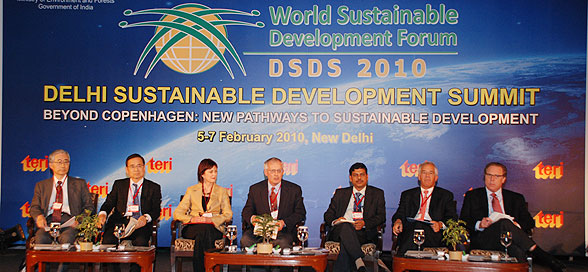 The session focused on mobilizing knowledge, and the role
of knowledge institutions in developing new pathways for
sustainable development. It was chaired by Prof Sir Peter
Crane, Dean, Yale School of Forestry and Environmental Studies,
USA.
The session focused on mobilizing knowledge, and the role
of knowledge institutions in developing new pathways for
sustainable development. It was chaired by Prof Sir Peter
Crane, Dean, Yale School of Forestry and Environmental Studies,
USA.
The addresses from the various speakers highlighted on how
knowledge institutions not only create, but also disseminate
and mobilize knowledge. It was discussed how there was an
increase in interest amongst various stakeholders in amplifying
the impact and relevance of outputs from knowledge centers.
Highlights
- The concept of ‘Networked-Networks’ deals with cross linking
the existing networks and consortium building.
- Students and alumni can play an important role in breaking
down disciplinary silos.







